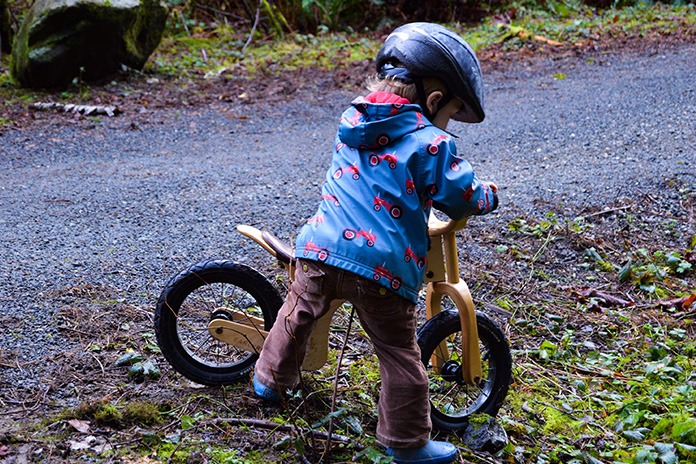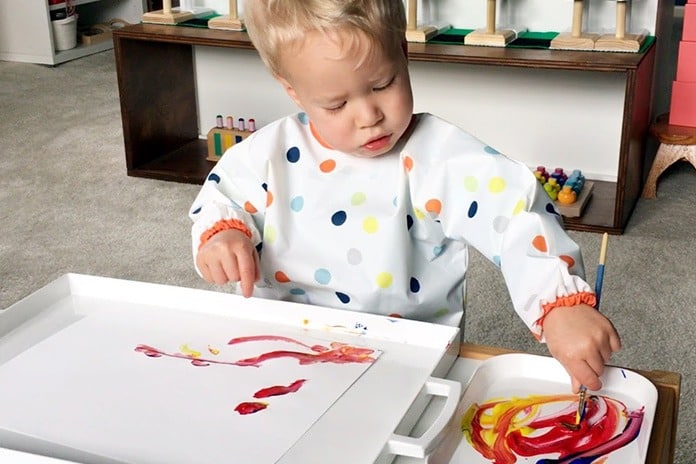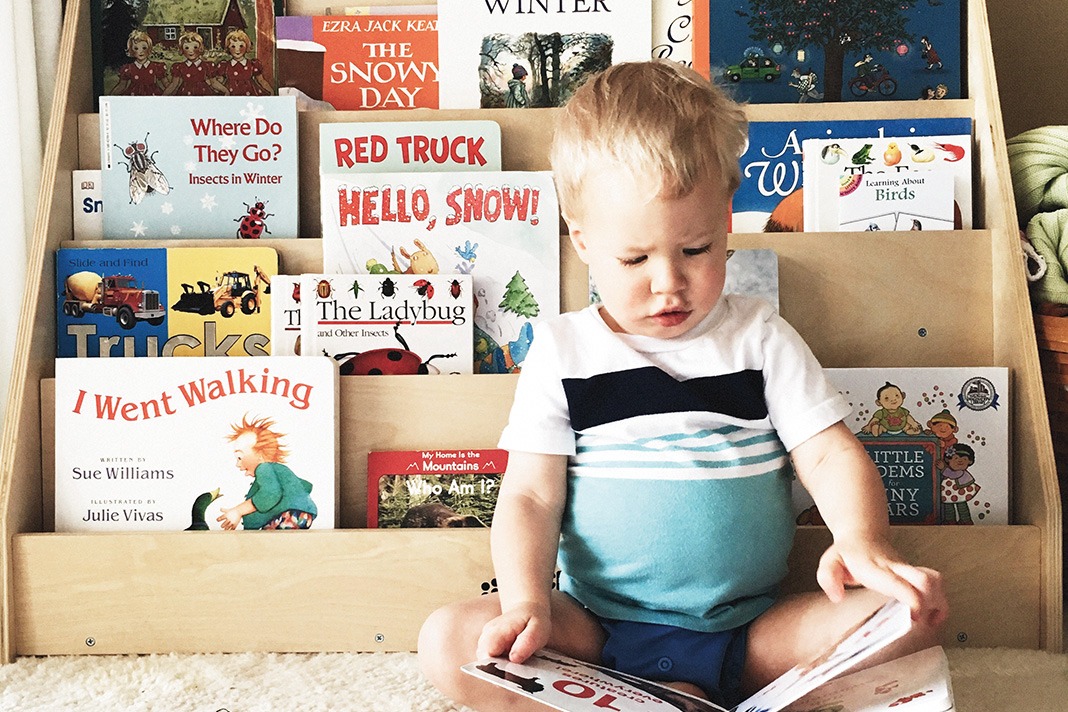Absolutely Mama talks about recalibrating your approach to parenting using the Montessori Method
Extracted from The Montessori Toddler by Simone Davies
Few are the parents who haven’t heaved a weary sigh when faced with irate toddlers. The choice is often between conceding to a little one’s demands or adopting a sterner tone – with predictably questionable results. But what if there was a better way? The Montessori method is built on trusting children’s motivations and giving them the freedom to guide their own development.
In her brilliant new book, The Montessori Toddler, Simone Davies explains how the ethos can help us to better understand our toddlers, allowing us to enable their development in patient and productive ways. The result is a calmer child with more confidence to resolve his or her frustrations. Using principles drawn from a century of Montessori success (not to mention her own years of experience running popular website The Montessori Notebook and the Jacaranda Tree Montessori playgroup in Amsterdam), Davies’ book is a refresher course in infant motivations.
Read on for some valuable insights from one of the book’s key sections: ‘What We Need to Know About Toddlers’.
Toddlers need to say “no”.
One of the most important developmental phases a toddler passes through is the ‘crisis of self-affirmation’. Between 18 months and 3 years, children realize that their identity is separate from their parents’ and they begin to desire more autonomy. At the same time they begin to say “no”, they begin to use the personal pronoun I. This movement toward independence does not come easily. Some days they will push us away, wanting to do everything by themselves; other days they will refuse to do anything at all or will cling to us.
Toddlers need to move.
Just as an animal does not like to be caged, our toddlers will not sit still for long. They want to keep mastering movement. Once standing, they move on to climbing and walking. Once walking, they want to run and to move heavy objects—the heavier the better. There is even a name for the desire to challenge themselves to the highest level by, for example, carrying big objects or moving heavy bags and furniture: maximum effort.
Toddlers need to explore and discover the world around them.
The Montessori approach recommends that we accept this, set up our spaces for our child to safely explore, get them involved in daily life activities that involve all their senses, and allow them to explore the outdoors. Let them dig in the dirt, take off their shoes in the grass, splash in the water, and run in the rain.
Toddlers need freedom.
This freedom will help them grow to be curious learners, to experience things for themselves, to make discoveries, and to feel they have control over themselves.

Toddlers need limits.
These limits will keep them safe, teach them to respect others and their environment, and help them become responsible human beings. Limits also help the adult step in before a boundary has been crossed to avoid the all-too-familiar shouting, anger, and blame. The Montessori approach is neither permissive nor bossy. Instead, it teaches parents to be calm leaders for our children.
Toddlers need order and consistency.
Toddlers prefer things to be exactly the same every day—the same routine, things in the same place, and the same rules. It helps them understand, make sense of their world, and know what to expect. When limits are not consistent, toddlers will keep testing them to see what we decide today. If they find it works to nag or meltdown, they will try again. This is called intermittent reinforcement.
If we understand this need, we can have more patience, more understanding. And when we aren’t able to provide the same thing every day, we will be able to anticipate that they may need additional support. We won’t think they are being silly; we’ll be able to see from their perspective that it’s not the way they were hoping it would be. We can offer them help to calm down and, once they’re calm, help them find a solution.
Toddlers are not giving us a hard time. They are having a hard time. I love this idea (attributed to educator Jean Rosenberg in the New York Times article ‘Seeing Tantrums as Distress, Not Defiance’). When we realize their difficult behaviour is actually a cry for help, we can ask ourselves “How can I be of help right now?”. We move from feeling attacked to searching for a way to be supportive.
Toddlers are impulsive.
Their prefrontal cortex (the part of the brain that houses our self-control and decision-making centres) is still developing (and will be for another twenty years). This means we may need to guide them if they are climbing on the table again or grabbing something out of someone’s hands, and be patient if they become emotional. I like to say, “we need to be their prefrontal cortex”.

Toddlers need time to process what we are saying.
Instead of repeatedly telling our child to put on their shoes, we can count to ten in our head to allow them time to process our request. Often, by the time we get to eight, we’ll see them start to respond.
Toddlers need to communicate.
Our children try to communicate with us in many ways. Babies gurgle and we can gurgle back; young toddlers will babble and we can show an interest in what they are saying; older toddlers love asking and answering questions; and we can give rich language, even to these young children, to absorb like a sponge.
Toddlers love mastery.
Toddlers love to repeat skills until they master them. Observe them and notice what they are working to master. Usually, it is something hard enough to be challenging but not so difficult that they give up. They’ll repeat and repeat the process until they perfect it. Once they’ve mastered it, they move on. Toddlers like to contribute and be part of the family. They seem to be more interested in the objects their parents use than they are in their toys. They really like to work alongside us as we prepare food, do the laundry, get ready for visitors, and the like. When we allow more time, set things up for success, and lower our expectations of the outcome, we teach our young child a lot about being a contributing member of the family. These are things that they will build on as they become schoolchildren and teenagers.
For more parenting tips, click here.






COMMENTS ARE OFF THIS POST